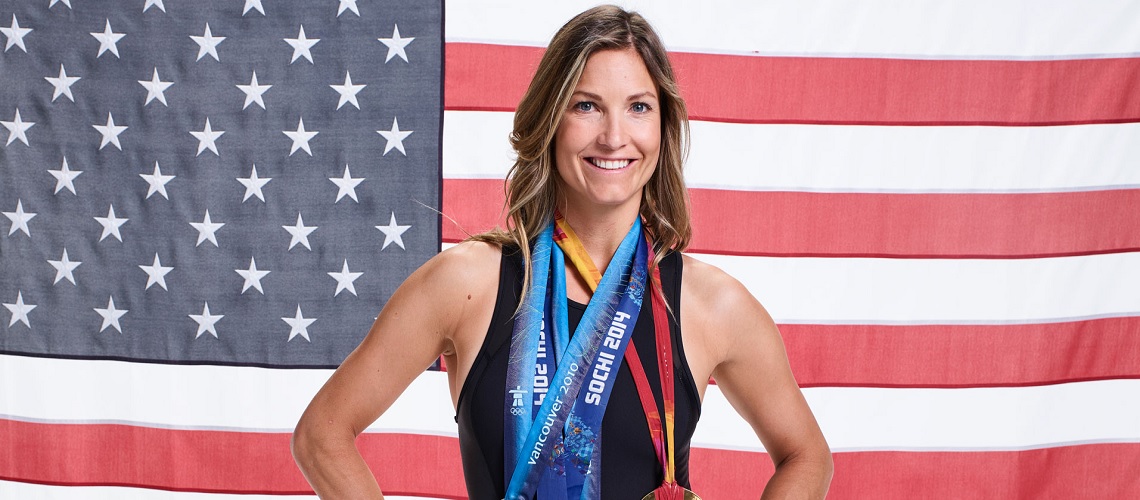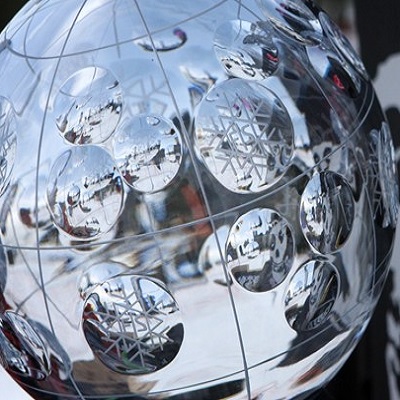Julia Mancuso Retires, Joins NBC Olympics For PyeongChang

Julia Mancuso, the most decorated female U.S. Olympic skier with four medals, ended her bid for a record fifth Olympics and is retiring after a victory lap in Cortina d’Ampezzo, Italy, on Friday.
Mancuso, 33, could not fully come back from right hip surgery that kept her out the previous two full seasons.
She raced three times this season without cracking the top 40.
Mancuso would have had one last chance to prove she deserved a PyeongChang Olympic place at a World Cup stop in Cortina this weekend.
Instead, she’s calling it a career now.
She will still go to PyeongChang, as a reporter for NBC Olympics and for “The Olympic Zone,” the nightly 30-minute show that airs on NBC affiliates.
“It has been an epic battle with my hip injury, and the past three years I have put everything into returning to competition at the highest level and the goal to reach my fifth Olympic Games,” Mancuso said in a U.S. Ski & Snowboard press release. “There have been really promising days during this challenging process, and I have kept my spirits up despite many who questioned or doubted me. Sadly, I haven’t found the progression to compete with the best in the world again, but I’m proud to have fought until the very end. It is with a heavy heart that I say goodbye to ski racing, but I do so with a full heart.”
Mancuso made her name as a big-event racer.
She reached 36 podiums in 398 World Cup starts (nine percent) but earned nine medals in 40 Olympic and world championships starts (23 percent).
None bigger than the 2006 Olympic giant slalom in Sestriere, Italy.
Mancuso battled driving snow and poor visibility to take gold, having never before won a World Cup or world championships race (but with five world junior titles and two 2005 World bronze medals). She stayed up late the previous night watching women’s figure skating on TV while eating Pop Tarts.
At the medal ceremony, the free spirit donned a plastic tiara, a gift presented by coaches at a team dinner. She also wore the tiara in place of a helmet for a slalom run in the combined event.
“Oh my God, I just won the Olympics,” Mancuso told teammate Stacey Cook immediately after winning, reportedly adding to media an hour later as Olympic champion, “You can’t imagine how weird it is to say that out loud.”
Mancuso had some lean seasons on the World Cup in the next two Olympic cycles, yet surprised for downhill and super combined silver medals in 2010 and another super combined bronze in 2014.
Mancuso, along with Lindsey Vonn, Bode Miller and Ted Ligety, was part of a golden generation of U.S. Alpine skiing. At least one of the four won a medal at every Olympics and world championships since 2002.
Now Miller and Mancuso have retired, and Vonn and Ligety are likely going to their last Olympics in PyeongChang.
Mancuso bid this year to join cross-country skier Kikkan Randall and (very likely) snowboarder Kelly Clark as the first U.S. woman to compete in five Winter Olympics.
Mancuso also would have been the second-oldest U.S. Olympic Alpine skier ever after Miller, the only American skier with more Olympic medals than Mancuso’s four.
Hip problems resulting from a birth condition kept that from happening.
Mancuso has hip displaysia, a misalignment of bones that causes the joint to deteriorate faster than normal.
When Mancuso was 18 years old, a doctor said she needed to choose between ski racing (Mancuso had already been to an Olympics at age 17 in 2002) or living a healthy life.
“I left crying and never went back to that doctor,” she said.
Mancuso underwent surgery after that 2006 Olympic title. The pain returned and, by 2015, became unbearable.
She underwent another hip surgery, this one much more complicated. The operation fixed cartilage damage, cleaned up bone spurs and put more anchors in her labrum because of a slight tear with doctors warning that her hip would probably be 90 percent of what it was, according to The Associated Press.
Mancuso spent six months on crutches. She hoped to return to racing last season but was limited to being a forerunner.
Again, this season, she delayed her comeback and never was able to race at the level she wanted.
“It’s really hard for me to walk normally,” Mancuso said in April. “A lot of people ask me why I’m doing it [skiing], because I can’t even walk. Why would I ski? The truth is, skiing is way easier. Skiing is fun because it is easy, and my body loves it. My body loves to ski, and my body needs to ski. … It improves my quality of life.”













